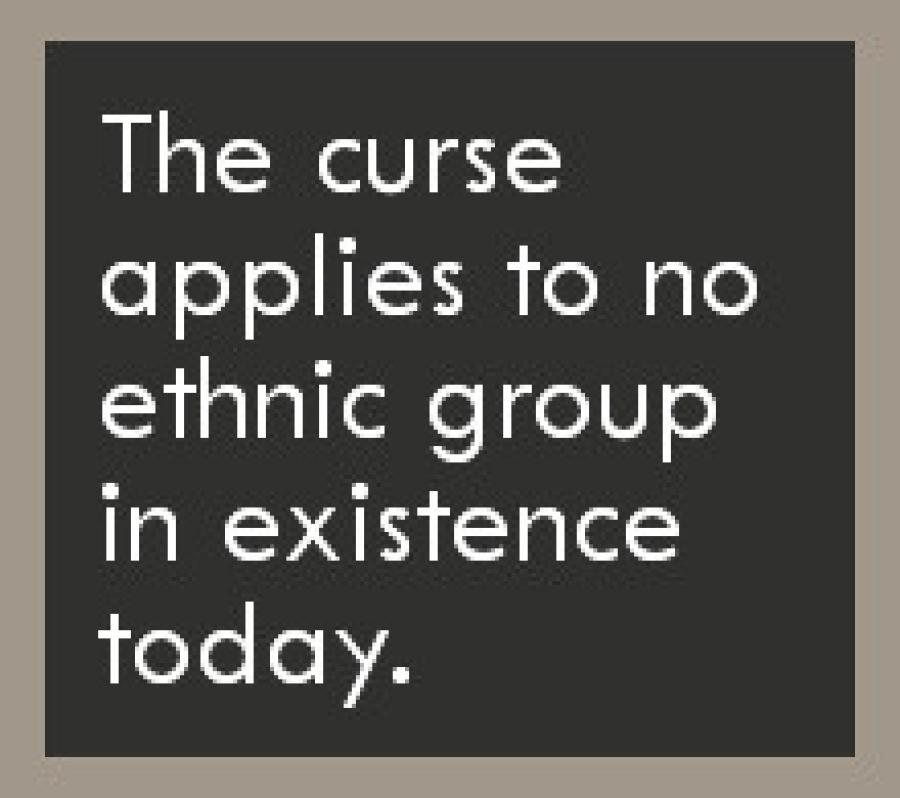From the Archives: Canaan and the Curse
Image

Originally posted in January of 2012. Read Part 1.
So Noah awoke from his wine, and knew what his younger son had done to him. 25 Then he said: “Cursed be Canaan; A servant of servants He shall be to his brethren.” 26 And he said: “Blessed be the LORD, The God of Shem, And may Canaan be his servant. 27 May God enlarge Japheth, And may he dwell in the tents of Shem; And may Canaan be his servant.” (NKJV, Genesis 9:24–27)
Canaan, son of Ham
By divine inspiration, Noah uttered his first prophecy about Canaan and his descendants: “He said, ‘Cursed be Canaan; a servant of servants shall he be to his brothers’” (Gen. 9:25). The observant reader at this point will ask an obvious question: If Ham committed the act, why is his son Canaan cursed?
This important question is not directly answered in the immediate context. No reason is stated why a son of Ham is cursed and not Ham himself. Perhaps the reason is that as Noah was dishonored by one of his sons, so Ham will be dishonored by one of his own sons. Or, perhaps Noah prophetically saw that Canaan and his descendants would reproduce the sensuous character of their father Ham more than his other descendants. Biblical history and archaeology do inform us that the Canaanites proved to be an ungodly and sensuous group (see Gen. 15:16; Lev. 18). Or, perhaps since Genesis 9:1 states that God had already blessed Noah and his sons (including Ham), it would be impossible for Ham himself to then be cursed (see Num. 23:20).
Whatever the reason God through Noah prophetically cursed Canaan, it is important to notice that not all of Ham’s descendants were placed under a curse of servitude and bondage (the phrase “servant of servants” describes the most severe slavery imaginable!) From Genesis 10:6 we learn that Ham had three other sons: Cush, Mizraim and Put. In Genesis 10:7-14 their sons are listed and we do know where they settled. Cush refers to Ethiopia; Mizraim refers to Egypt; and Put refers to North Africa/Libya. Thus, three of Ham’s sons and their descendants settled in Africa.
Their brother Canaan’s descendants, however, did not settle in Africa, but in the land to which they gave their father’s name—the land of Canaan! It was this land that God later promised to Abraham, a descendant of Shem (Gen. 12:5-7; 15:18-21). Later, Joshua conquered this land and placed the Canaanites under forced slave labor (Josh. 9:23). Even later, Solomon followed the same practice by enslaving the surviving Canaanites in his day (1 Kings 9:20-21). Thus, the prophetic curse of slavery was literally fulfilled on the Canaanites. The curse, therefore, applies to no ethnic group in existence today. The mistaken idea that Ham’s African descendants are cursed is a myth too often repeated even to this day!
Sadly, there still survives, especially in the Southern U.S., an idea that African Americans are somehow under the curse of Ham—the curse that never was!
Will Varner Bio
Will Varner is Professor of Bible & Greek at The Master’s College. He earned a BA from Bob Jones University, MA from Dropsie College, MDiv and ThM from Biblical Theological Seminary and EdD fromTemple University. He blogs at DrIBEX Ideas.
- 16 views
I grew up in the South and went to college in the South. The first time I even heard of the “curse of Ham”, I was in my mid-twenties and a Northerner was telling me that there was an abundance of Southerners who believe in the curse of Ham. Please stop perpetuating this myth. (Yes, I realize this is just one person’s experience but you would think if it was such a widespread belief as you claim, that I might have heard it spoken maybe just once.)
They are different for everybody. Varner also went to school in the south and I can only assume he spoke from experience on that point.
As for me, I have heard the idea a few times over the years but mostly (maybe entirely) further back than my 4 years in SC and 3 in GA. So I can’t say I’ve observed much of a regional pattern there either. The more important point is that it is an error that has been around for a while but one that should never have gained traction given the clarity of the text and the biblical-historical background.
Views expressed are always my own and not my employer's, my church's, my family's, my neighbors', or my pets'. The house plants have authorized me to speak for them, however, and they always agree with me.




Discussion